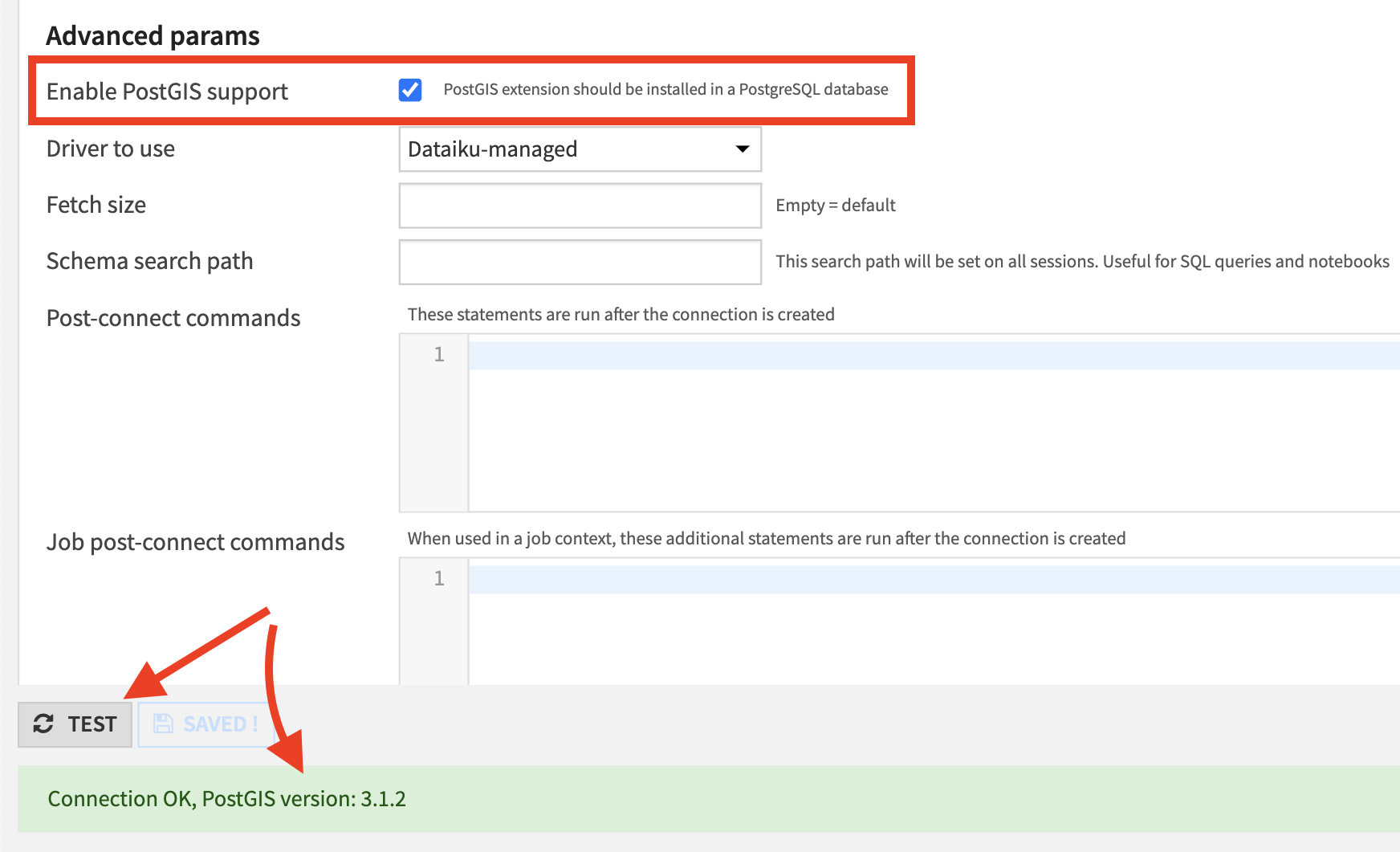PostgreSQL¶
Note
You might want to start with our detailed tutorial for your first steps with SQL databases in DSS.
You might want to start with that tutorial. The rest of this page is reference information for PostgreSQL.
DSS supports the full range of features on PostgreSQL:
Reading and writing datasets
Executing SQL recipes
Performing visual recipes in-database
Using live engine for charts
DSS supports PostgreSQL versions 9 and above. PostgreSQL 8 is not supported.
Note
Computing column statistics metrics on PostgreSQL datasets requires a version 9.4 or greater.
Installing the JDBC driver¶
The PostgreSQL driver is pre-installed in DSS. You don’t need any further installation.
Secure connections (SSL / TLS) support¶
DSS can connect to a PostgreSQL server using secure connections.
Setup with certificate validation (recommended)¶
Importing the server certificate¶
You first need to obtain and convert the server certificate. Please follow the instructions laid out here:
https://jdbc.postgresql.org/documentation/ssl/
The server certificate should be added to the truststore of the JVM used by DSS, using one of the procedures described at Adding SSL certificates to the Java truststore.
Setting up the PostgreSQL connection¶
In the settings of the connection, add an “Advanced property”:
Key:
sslValue:
true
Setup without certificate validation (not recommended)¶
Setting up SSL connection without certificate validation is much simpler, but by removing certificate validation, you loose the protection that SSL provides, since an internal attacker could still be able to impersonate the server
In the settings of the connection, add the following 2 “Advanced properties”:
Key:
ssl, Value:trueKey:
sslfactory, Valueorg.postgresql.ssl.NonValidatingFactory
PostGIS integration¶
PostGIS is a widely used PostgreSQL database extension that allows to store and process geospatial data. DSS can leverage PostGIS functionalities to run geospatial queries directly in the database.
In order to verify that PostGIS is properly installed and can be used in DSS, there’s a checkbox available on the PostgreSQL connections page:

Note
DSS supports 2 geospatial types: geopoint and geometry. By default they’ll be translated to geography type of PostGIS. This behaviour can be changed by setting dku.datasets.postgresql.postgis.useGeography parameter to false in the config/dip.properties file.